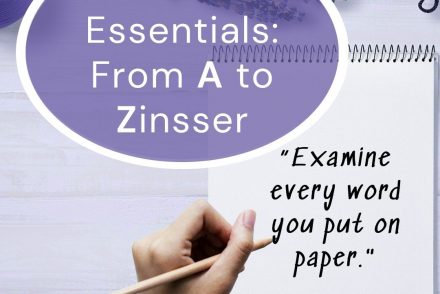
Craft Essentials
You May Be Done, But You’re Not Finished
“Rewriting is the essence of writing well; it’s where the game is won or lost. That idea is hard…
February 21, 2022
“Rewriting is the essence of writing well; it’s where the game is won or lost. That idea is hard…
February 21, 2022
“Rewriting is the essence of writing well; it’s where the game is won or lost. That idea is hard…
January 21, 2022
“You can solve most of your writing problems if you stop after every sentence and ask: what does the…
October 21, 2021
“The writer, his eye on the finish line, never gave enough thought to how to run the race.” William…
September 21, 2021
“The only way to learn to write is to force yourself to produce a certain number of words on…
August 21, 2021
“Don’t say you were a bit confused and sort of tired and a little depressed and somewhat annoyed. Be…
July 21, 2021